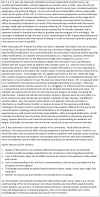Designing exercise clinical trials for older adults with cancer: Recommendations from 2015 Cancer and Aging Research Group NCI U13 Meeting
- PMID: 27197916
- PMCID: PMC4969104
- DOI: 10.1016/j.jgo.2016.04.007
Designing exercise clinical trials for older adults with cancer: Recommendations from 2015 Cancer and Aging Research Group NCI U13 Meeting
Abstract
Cancer and its treatment can lead to a myriad of adverse events and negatively impact quality of life of older cancer patients and survivors. Unmet physical activity needs vary across the cancer continuum and remain an important yet understudied area of research in this population. Exercise interventions have been shown to be effective in treating both the physical and psychological declines associated with cancer and its treatment, with a potential to improve cancer-related outcomes. Despite the current evidence, exercise is clearly underutilized due to several barriers and knowledge gaps in existing trials that include appropriate population identification, design, and outcome measures selection. The benefits of regular exercise in both the primary and secondary prevention of chronic conditions are well established in the non-cancer population. In older cancer patients and survivors, further research is needed before exercise gains widespread acceptance. The Cancer and Aging Research Group convened experts in exercise, aging and cancer to evaluate current scientific evidence and knowledge gaps in geriatric exercise oncology. This report summarizes these findings and provides future research directions.
Keywords: Cancer; Exercise; Geriatric recommendations; Older patients.
Published by Elsevier Ltd.
Conflict of interest statement
Figures
References
-
- DeSantis CE, Lin CC, Mariotto AB, Siegel RL, Stein KD, Kramer JL, et al. Cancer treatment and survivorship statistics, 2014. CA Cancer J Clin. 2014;64(4):252–271. - PubMed
-
- Hawkins SA, Wiswell RA. Rate and mechanism of maximal oxygen consumption decline with aging: implications for exercise training. Sports Med. 2003;33(12):877–888. - PubMed
-
- Burg MA, Adorno G, Lopez EDS, Loerzel V, Stein K, Wallace C, et al. Current unmet needs of cancer survivors: analysis of open-ended responses to the American Cancer Society Study of Cancer Survivors II. Cancer. 2015;121(4):623–630. - PubMed
Publication types
MeSH terms
Grants and funding
LinkOut - more resources
Full Text Sources
Other Literature Sources
Medical




